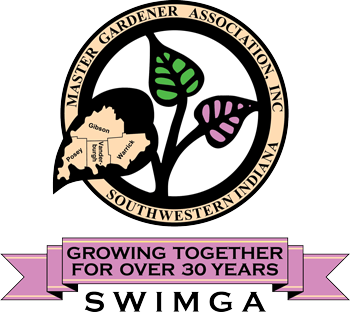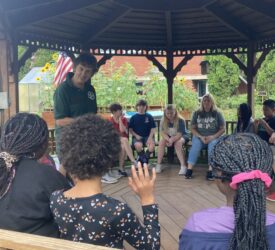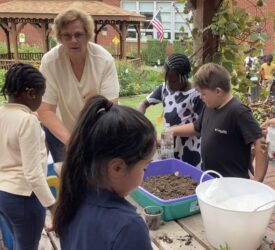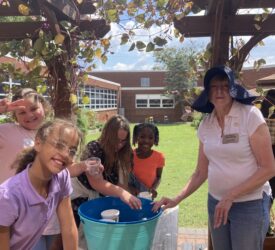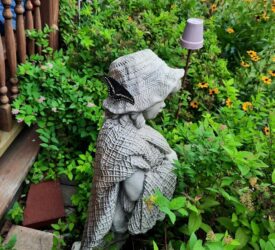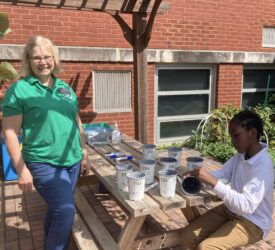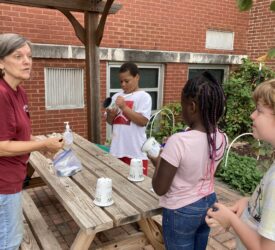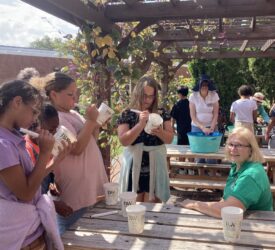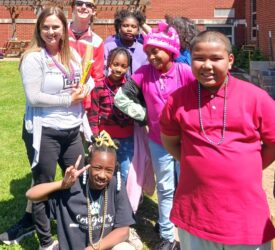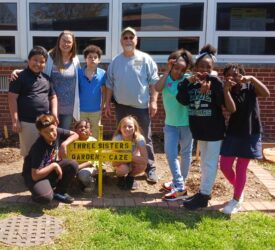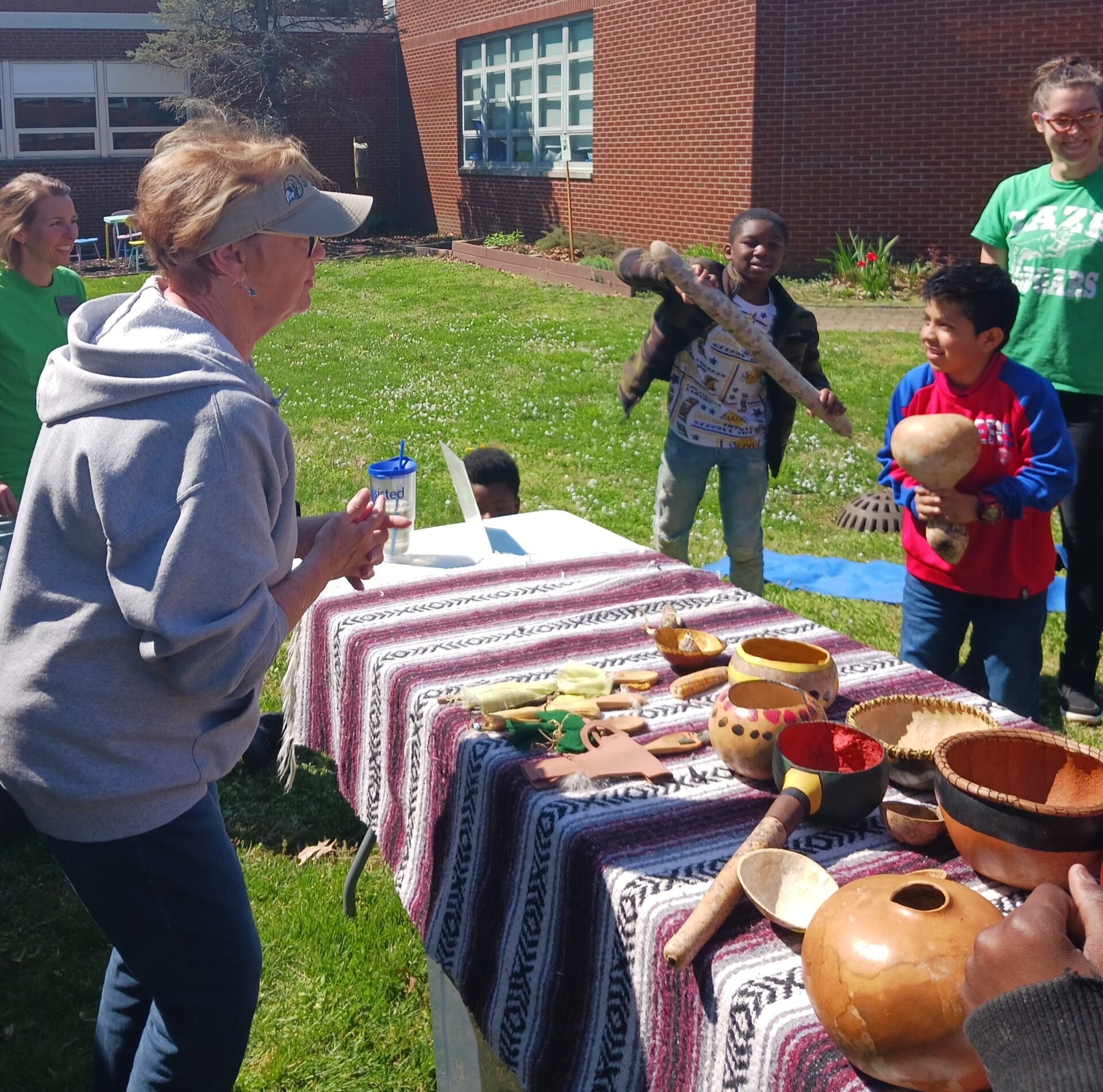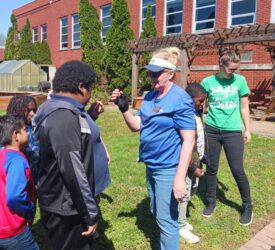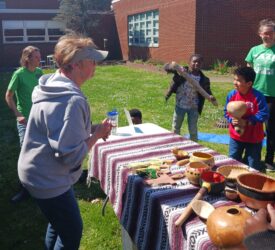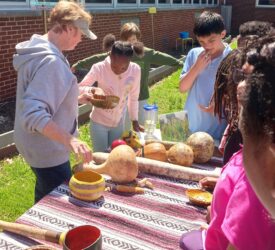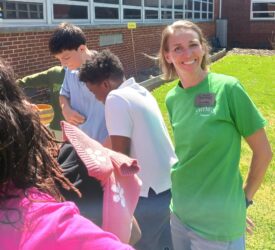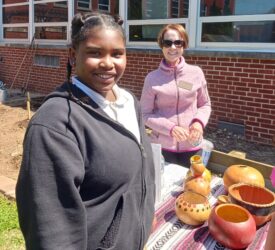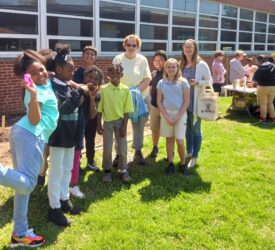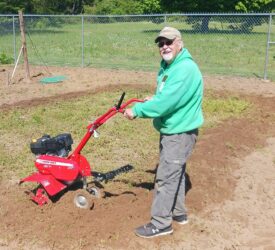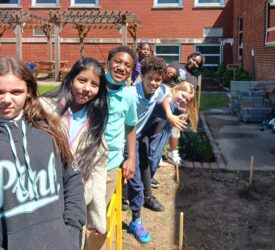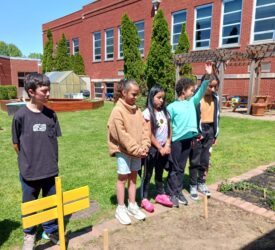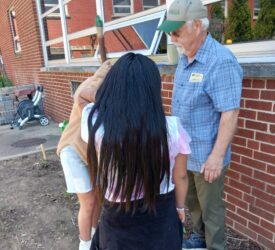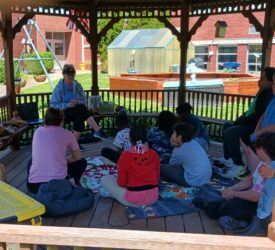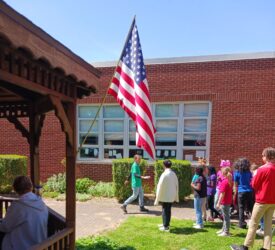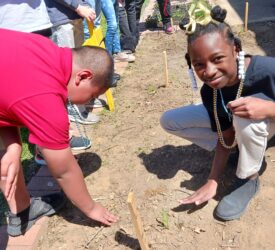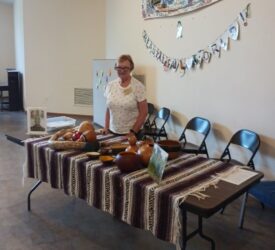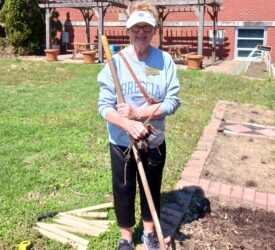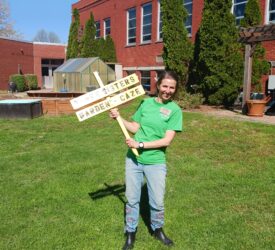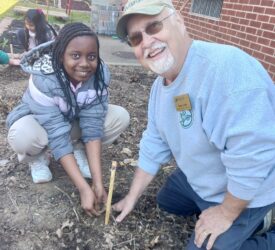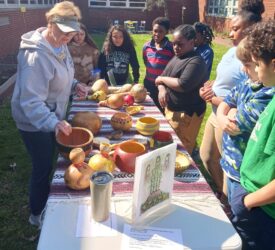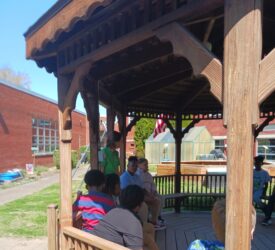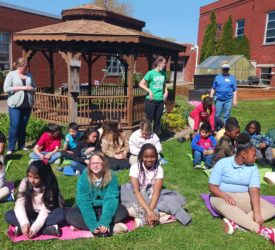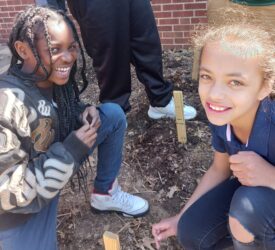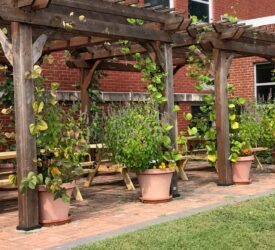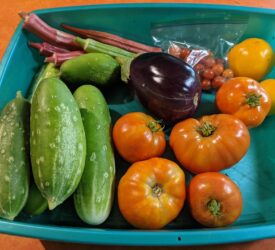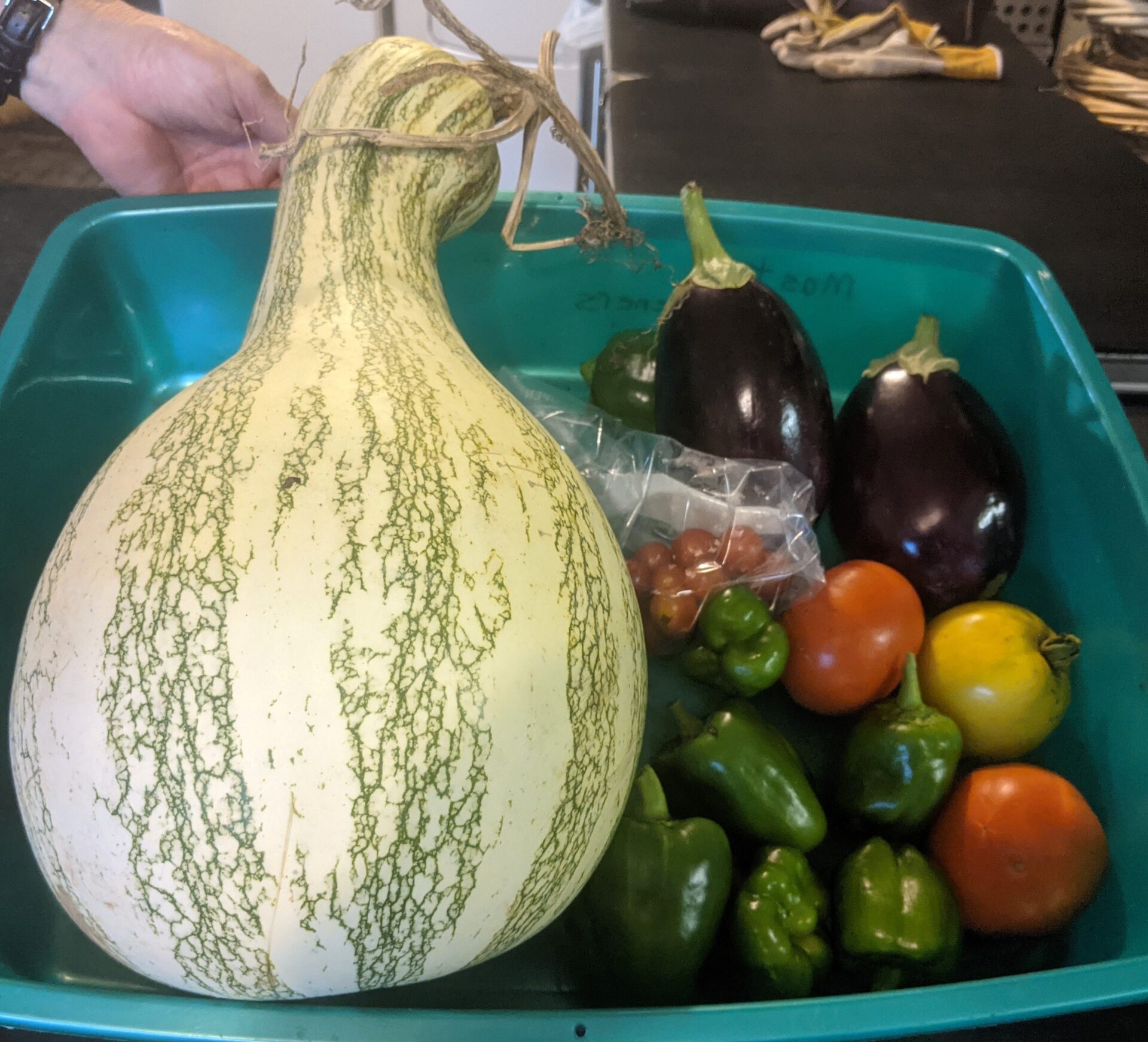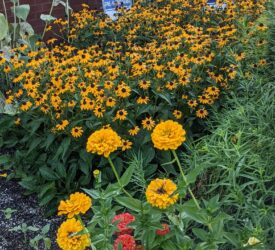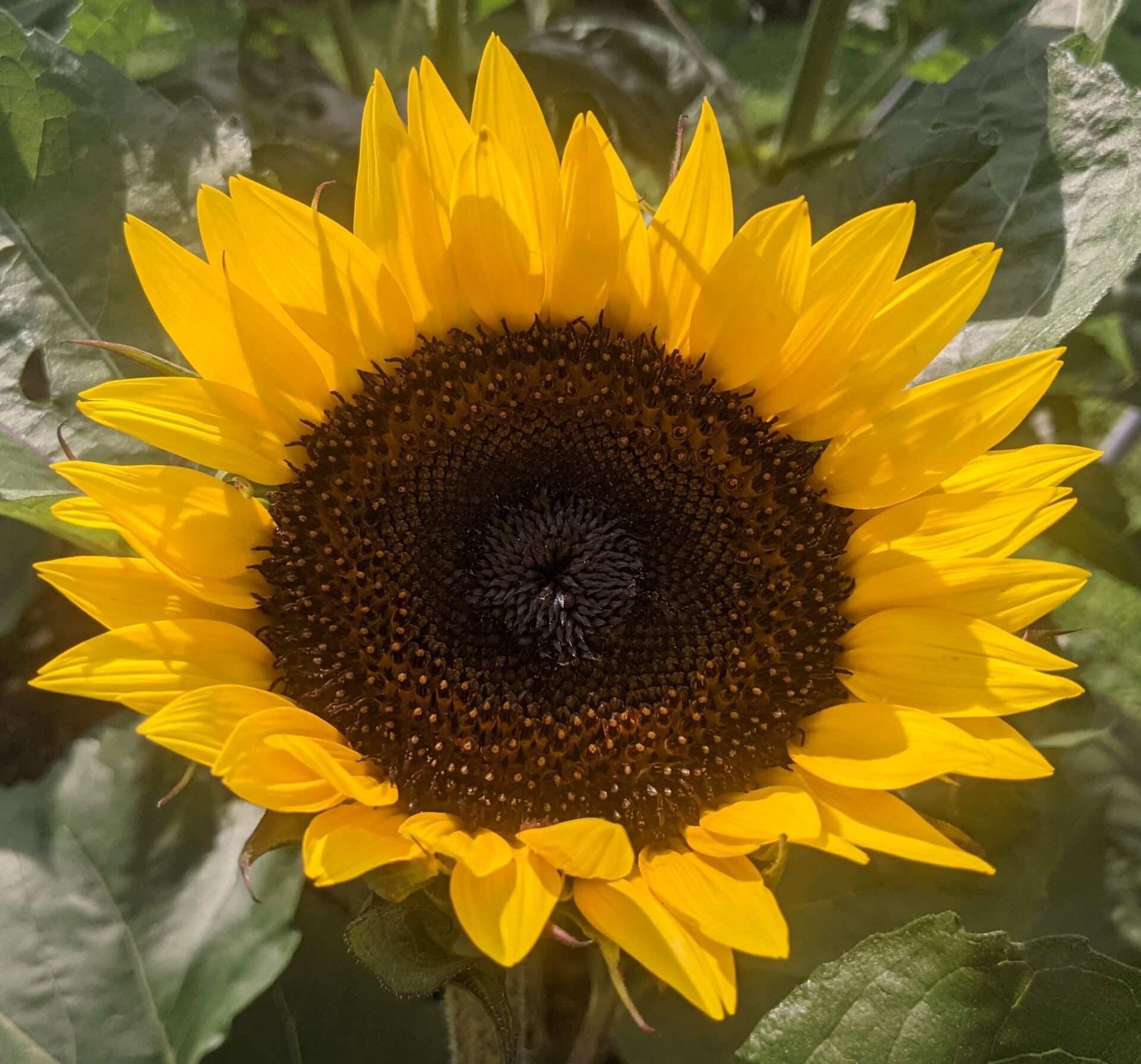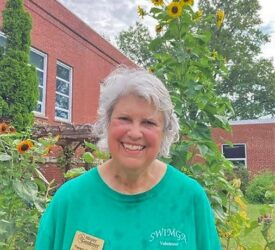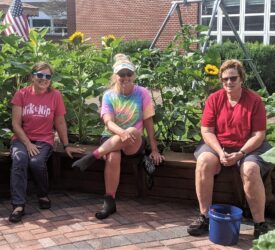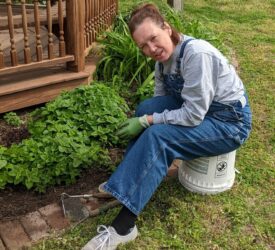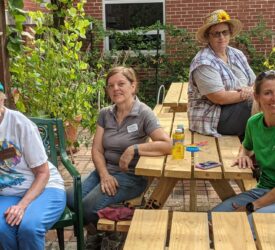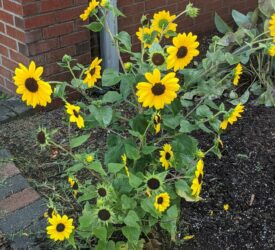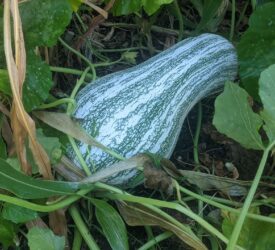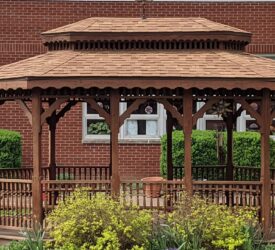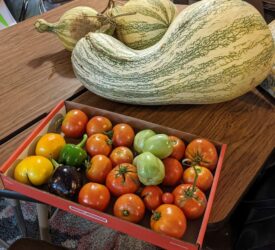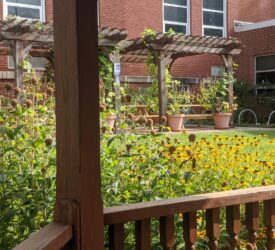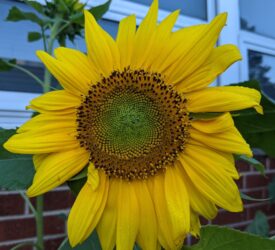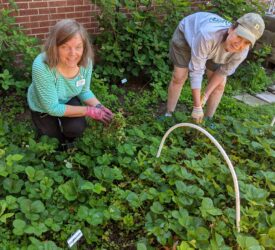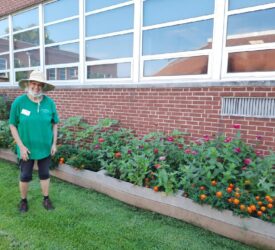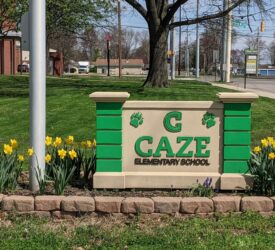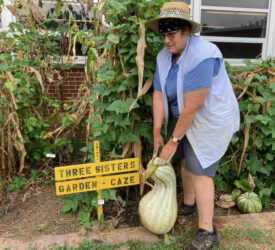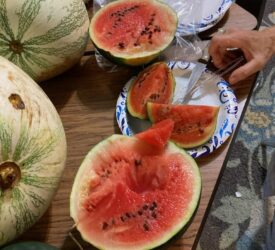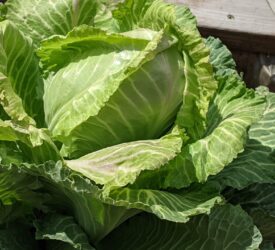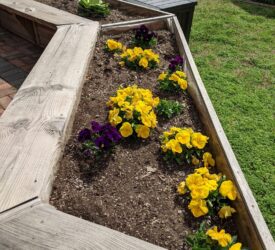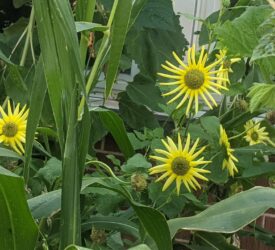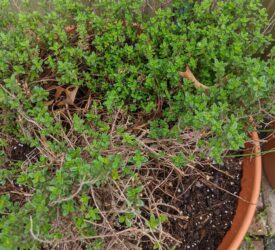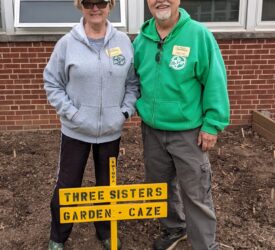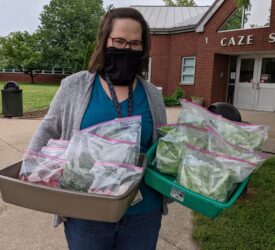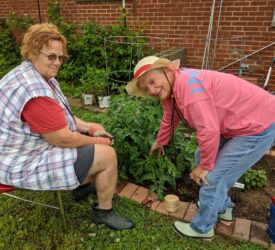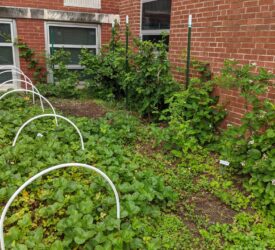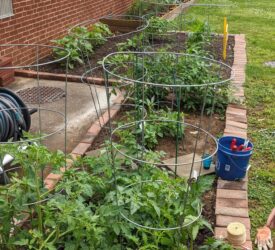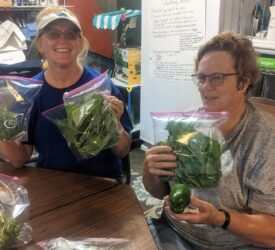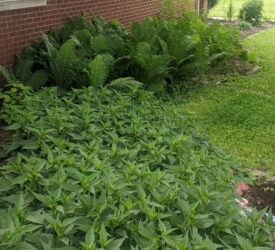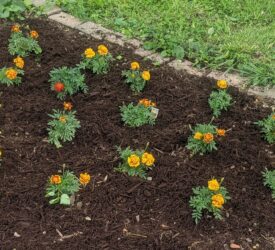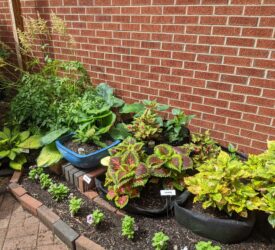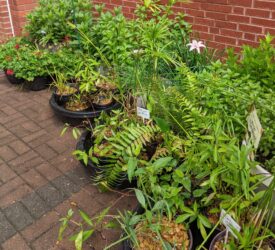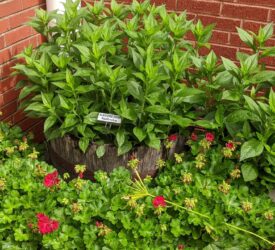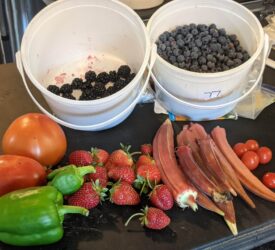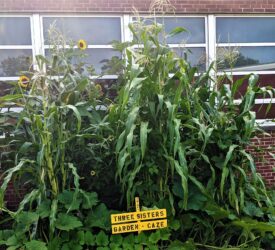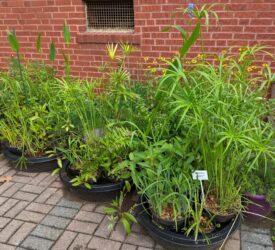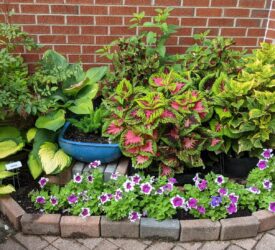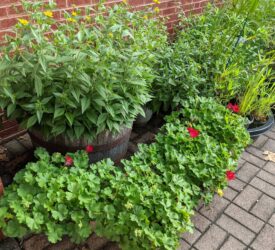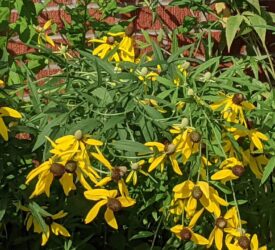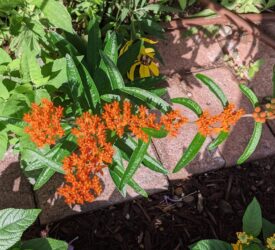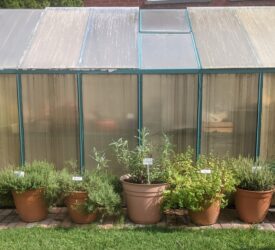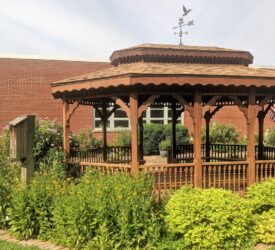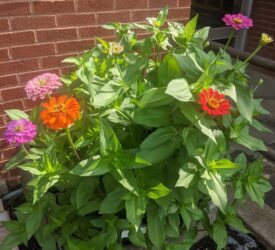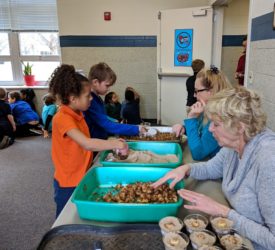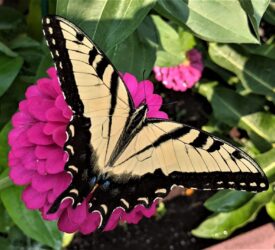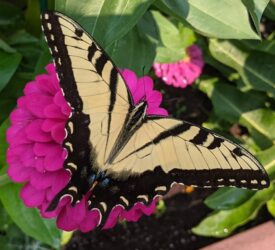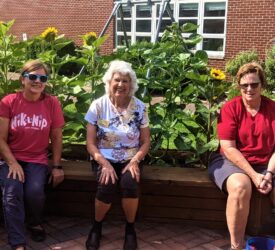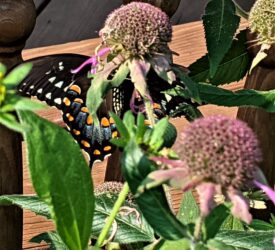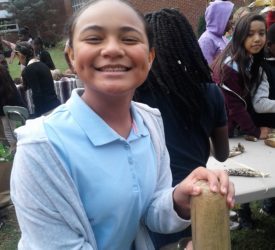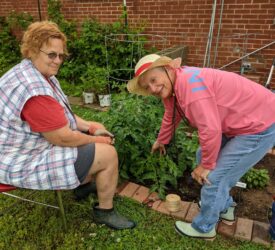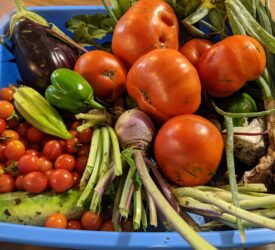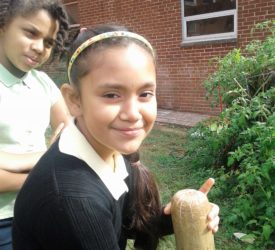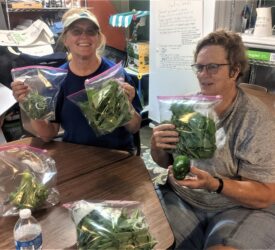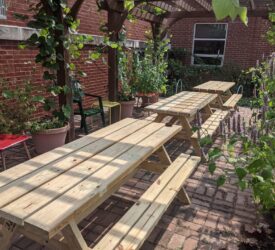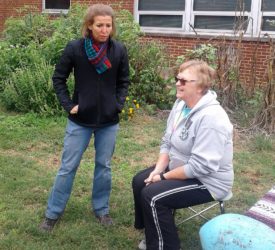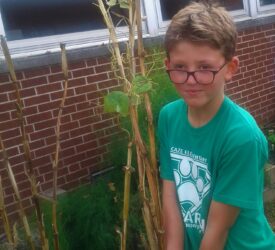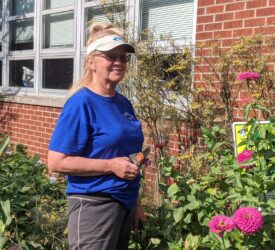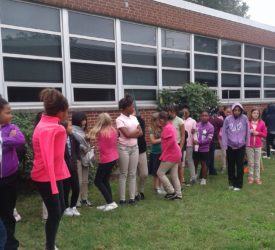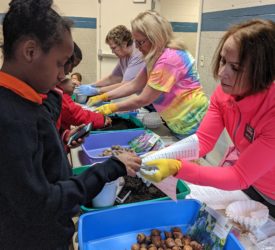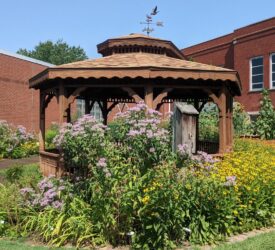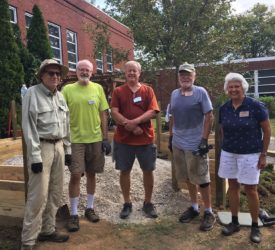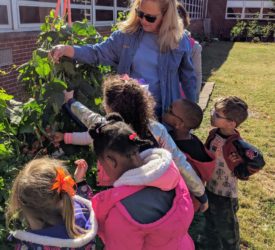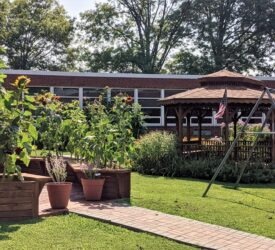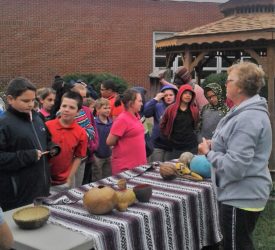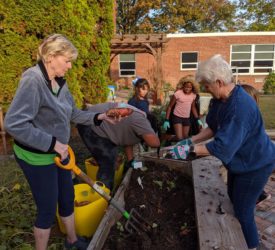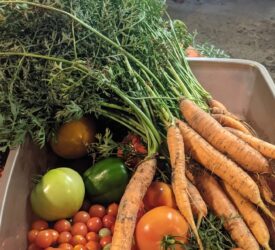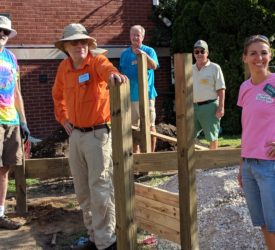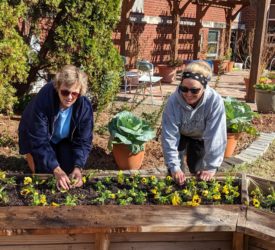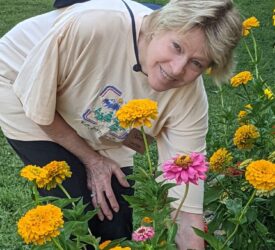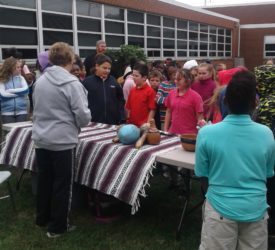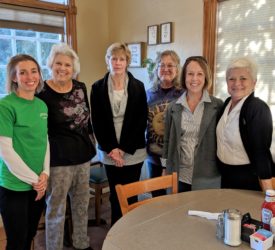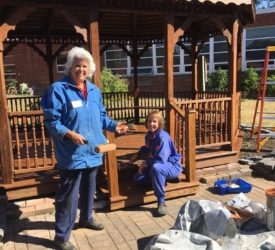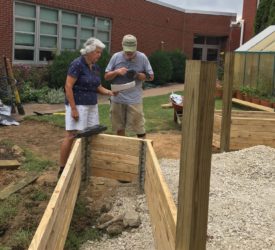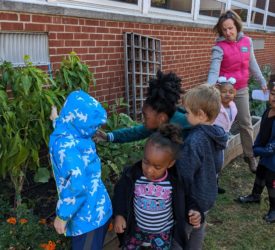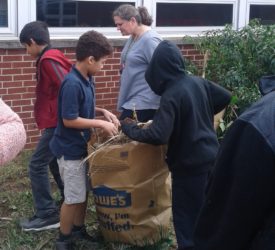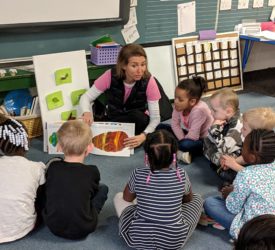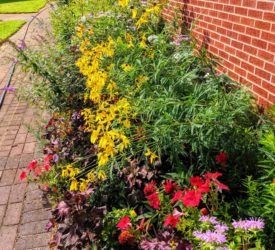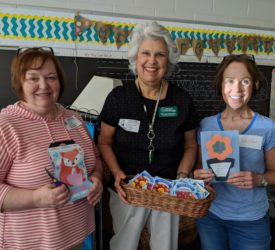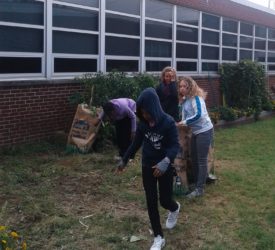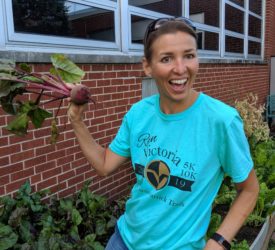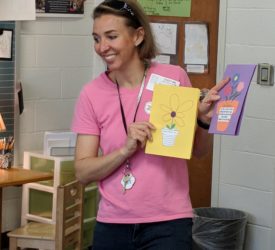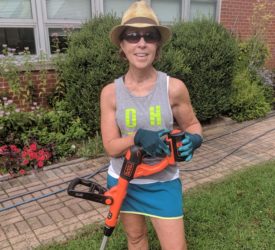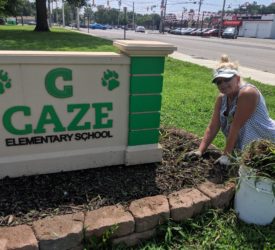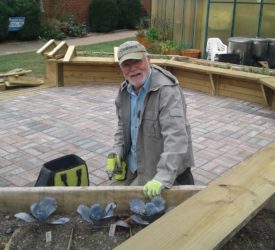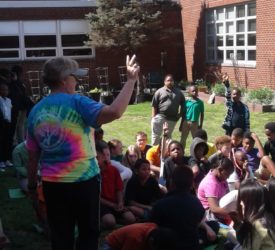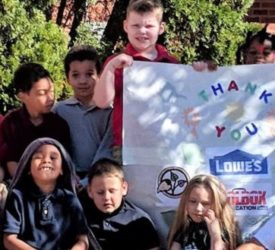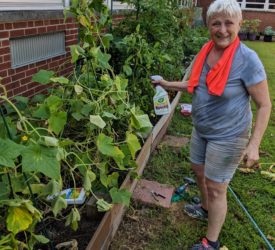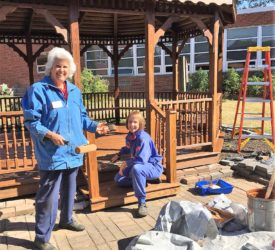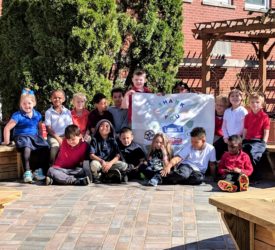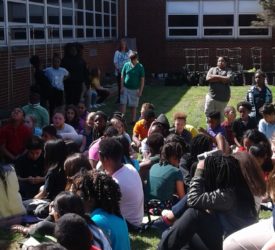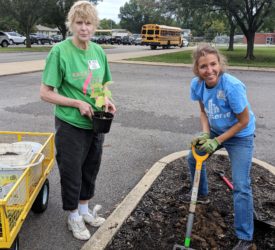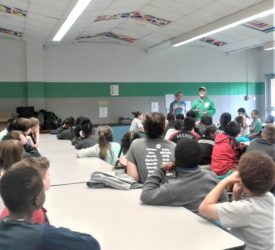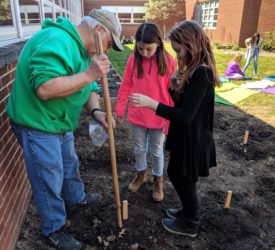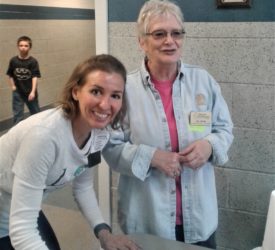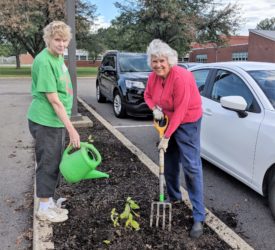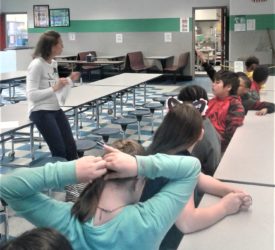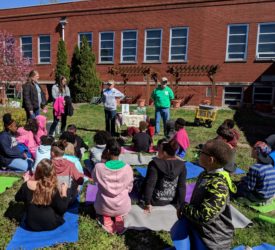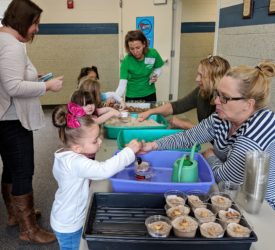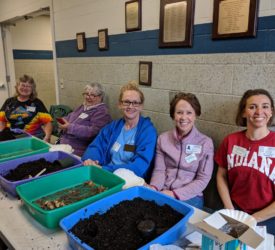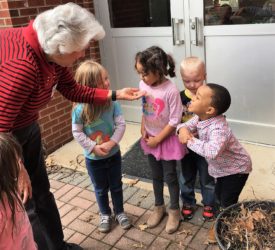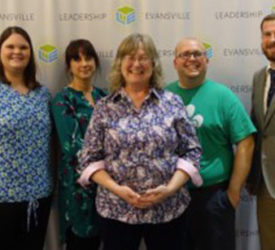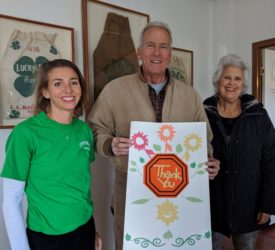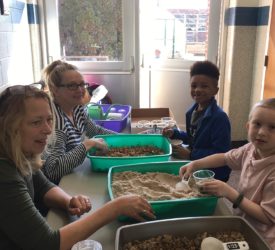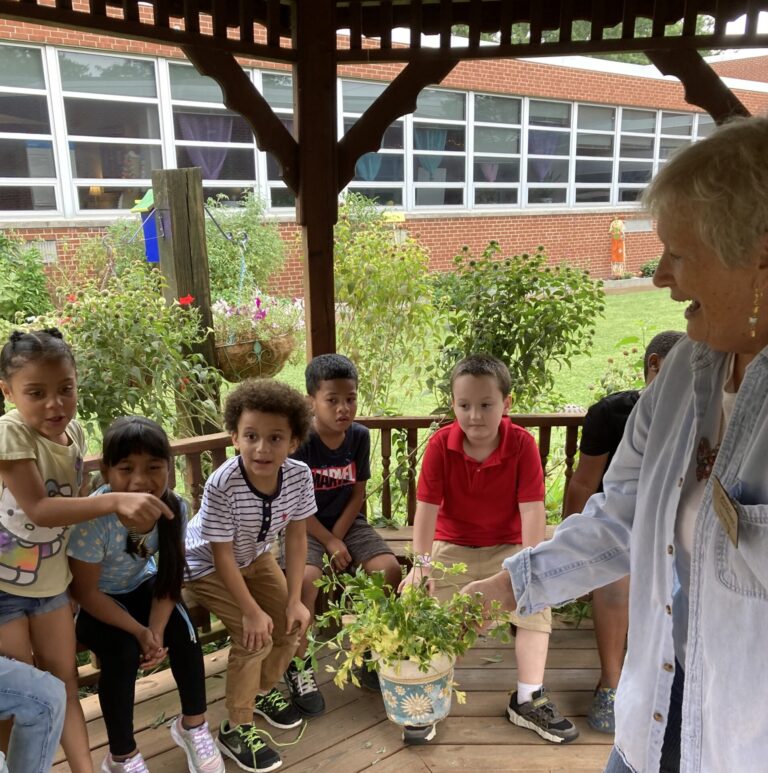 Caze Courtyard Garden and After School Program
Caze Courtyard Garden and After School ProgramApril 2024 UPDATE: On February 27 and 28 we held another successful spring bulb planting with the students of Caze Elementary! Sixteen classes with over 385 students planted daffodil bulbs with the help of 12 SWIMGA volunteers. The bulbs were donated by a SWIMGA member from her property. The kids were amazed that they were already sprouted and that some even had small buds. The teachers, administration and students were so thankful, and everyone is looking forward to sunflower and zinnia seed planting with the students in May. As the Caze courtyard garden comes back to life this spring, some of the soil and mulch are being replenished. The gazebo and pergola will also be stained since that hasn’t been done in almost five years.
October 2023 UPDATE: After a long, enjoyable summer working hard to make the Caze courtyard look good for the faculty and students, the fall cleanup is done. The garden has been harvested, flowers have been cut down, and all equipment stored. Thanks to our team of Master Gardeners for making the year a success! Our small vegetable garden produced 140 pounds of vegetables for St. Vincent DePaul and the Salvation Army food pantries. A total of 1038 contacts were made with the students through the Caze Open House, Three Sisters Planting, and Herb Transplant days. At the end of October, we helped with the Caze Fall Carnival. The seed-started sunflowers in the sunflower reading area were a big hit with the students and their classrooms, with many class pictures taken in front of the reading area. The squirrels also enjoyed the seeds very much. We had a good year and are planning for the spring.
September 2023 UPDATE: Caze School’s August 4 open house was a resounding success. The mini display garden left 400 parents and students amazed, with many visiting the courtyard for the first time. Among the highlights was the discovery of a monarch caterpillar on the swamp milkweed. One lucky drawing winner walked away with a free Harvest cookbook.
June 2023 UPDATE: The entrance and courtyard have been weeded and planted. The flowers are blooming while the vegetable garden has begun producing onions, radishes, spinach and broccoli. The Jr. Master Gardener’s last class was April 26. There was a second planting at the Three Sisters Garden with fourth graders on May 4, when they planted beans and squash around the corn that was planted in April. One hundred and fifty-five students planted seeds across two days, on May 10 and 11 – the students got to choose between a sunflower or zinnia seed to plant in a cup to take home. The kids planted a small vegetable garden along with a zinnia flower bed to end the year. A pizza party for the kids was held on their last day.
April 2023 UPDATE: Over 300 kids planted freesia bulbs at Caze Elementary during the first week of March. We were blessed with beautiful warm weather the first two days. Each class started with a short discussion in the “Sunflower Reading Room” area. Volunteers helped each child plant a freesia bulb then kids were taken on a tour of the garden to hunt for bulbs. There were beautiful daffodils and crocuses in bloom for the kids to find as the tulips, irises, and fennel were starting to emerge. The kids were most excited to find carrots in the vegetable section, and the master gardeners were shocked by this discovery. The third day was too cool to plant outside, but we still braved the weather for the garden tour. Special thanks to these volunteers that worked so hard to make it a wonderful, fun experience for the kids.
February 2023 UPDATE: Volunteers met early in 2023 to plan the summer gardens. There will be a new herb garden, from the herbs being planted in pots to being planted in the ground. There is all new signage to place in the various gardens to help the students identify each garden. At the end of February there is a three-day bulb planting with the students. There are 10 students honing their gardening skills through teaching, planting, and experiments in the junior master gardening after school program. There has been a lot of clean up, spreading leaves, sorting seeds and painting to get ready for the new gardening season.
September 1, 2022 update:
After two years of the COVID epidemic, the Caze Courtyard gardeners were eager to get back to work this spring. We were warmly welcomed by the principal, staff and students who were familiar with seeing the master gardeners in the courtyard, as well as the front entrance garden (Indiana native area). Currently the gardens are relatively easy to maintain due to the favorable weather, and because many of the plants are perennials, that are now flourishing after over six years of working in these areas. The vegetable garden is outstanding due to the hard work of Brenda Halter and others. The design is great for a schoolyard garden with small quantities of many different types vegetables. Common vegetables like tomatoes, peas and beans are represented, but also special varieties like Mallard spinach can also be found in the vegetable garden area. The Pergola area is comprised of eight large pots with various plants that have edible flowers. The Hyacinth beans are doing very well and climbing up the posts in the Pergola area and have beautiful flowers on them. The octangular raised bed (Sunflower Reading Room Area) is transitioning to a cool weather vegetable garden with cabbage, broccoli and kale. A few sunflowers finally came up, but so far this has not been a good year for sunflowers, at least not in a our gardens. Pollinator Lane is now a mature area, requiring minimal care. The plants in this area are all perennials that were planted to attract bees, birds and butterflies. We are looking forward to continuing our day education program with Amy Kehler, coordinating this program. September 7, 8, and 9 we will be planting succulents with the students. We also are restarting the afternoon program (Junior Master Gardeners). Margo Walker will use her skills as an art teacher and master gardener to teach this program along with Terri Neumann and other master gardeners interested in working with the children as part of the Junior Master Gardeners.
Caze Elementary School’s building surrounds a beautiful interior courtyard that has been developed into an outdoor classroom for the students, which was established in 2005. Most recently an after-school garden club has been created, integrating many gardening and environmental topics into the curriculum. The children take lessons on gardening, nutrition, plant growth, wildlife, and other pertinent topics. Together with Master Gardeners, the children learn how to start seeds, plant, and care for the plants, which include vegetables, herbs, annuals, perennials, and berries. The program provides valuable education to the children and allows them the opportunity to eat food that they have grown themselves.
At the 79th Annual Soil and Water Conservation District Meeting and Banquet on February 19, 2020, SWIMGA member Cindy Farmer received the Conservation Educator Award. Cindy is in charge of the After School Program.
Here is the wording for the Conservation Educator of the Year Award: “Cindy Farmer is the project leader for the Junior Master Gardener program offered at Caze Elementary for 12 students in 3rd, 4th and 5th grades. The students study soil science, the water cycle, beneficial garden insects, the importance of soil sampling, how to grow and plant seeds using the square food gardening method, how flowers are pollinated and by whom are just to name a few. The students grow 36 different varieties of vegetables, fruits and herbs organically in pots, grow bags, raised beds and in-ground gardens. This program provides teachers with Monarch eggs in a mini habitat where students observe the life cycle changes of the Monarch butterfly and release the butterflies in the garden every year. A worm composter is used in the class allowing them to add worm compost to new plantings, where students see how worms help recycle organic material and make it available to the plants as nutrients. Cindy also teaches the importance of nutrition, food preparation, safe food handling and cooking techniques where students are encouraged to eat through the colors of the rainbow every day. The Vanderburgh County SWCD is proud to honor Cindy Farmer with the Conservation Educator Award.”
